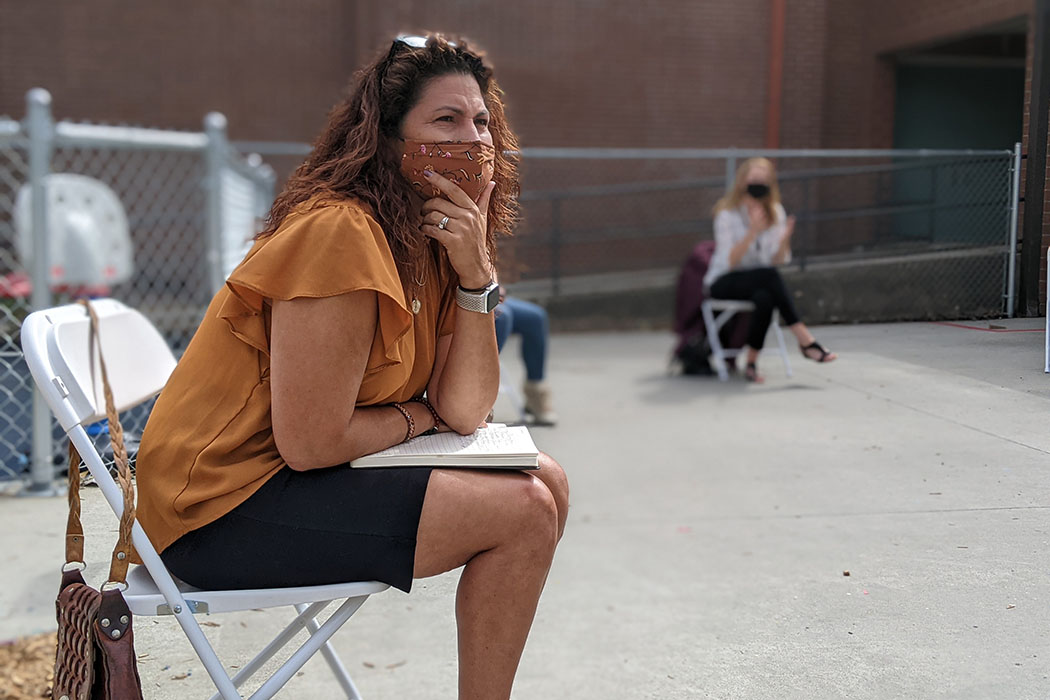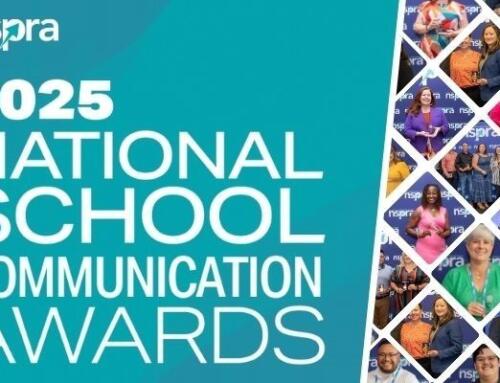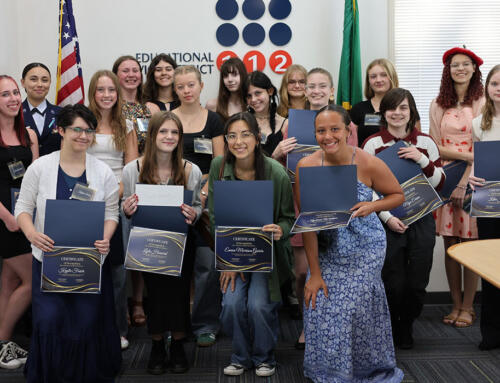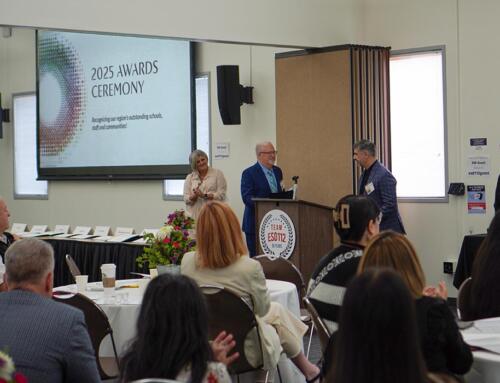Washington State Representative Monica Stonier recently visited ESD 112’s Hough Early Learning Center (ELC) in downtown Vancouver to hear about the challenges local child care providers and stakeholders face in making child care both accessible and affordable to families.
Stonier, who has represented Vancouver’s 49th District since 2017, met with representatives from ESD 112’s Early Care and Education program, Hough Elementary School, Support for Early Learning & Families (SELF), YWCA and PeaceHealth Southwest.
During an outdoor, socially-distanced discussion, the group focused on “child care’s four essentials”: sustainability, accessibility, affordability and workforce.
“Child care is one of the areas I really want to dig into in this region over the coming months,” said Stonier. “The need for a stronger child care system with a better paid workforce is not a partisan issue. People understand it’s a problem.”
Child care facilities across the state have struggled with enrollment and staffing in recent years – a challenge intensified by the pandemic. As a result, many providers have been forced to reduce operations or even shut down permanently.
“Child care, and the business of child care, has been in crisis for quite some time,” explained Debbie Ham, Executive Director of SELF, a Vancouver-based nonprofit that works to support early childhood education. “In our region, we’ve had the highest number of child care closures in the state, and that’s very concerning when you consider that child care is a business that supports working parents so that other businesses in the community can have a stable workforce.”
Jodi Wall, Executive Eirector of ESD 112’s Early Care and Education department, said that when it comes to access to child care, families in Southwest Washington have faced an uphill battle for quite some time.
“In our region, we have a lot of child care deserts (areas of need that contain either no child care providers or very few options), even in some of the more suburban areas,” she said. “Accessibility is a huge issue for families that need to find something close to their home or workplace so that child care is feasible within their daily schedule.”
Bradyn Weller, a parent whose son is currently enrolled in the Early Head Start child care program at Hough ELC, also sat in on the discussion with Rep. Stonier. She reinforced the importance of accessibility while describing her own experience navigating the child care system.
“Location is a huge deal,” she said. “It has been very helpful because I live in the neighborhood and don’t own a car. I’m able to walk to the center to drop off my son… This program has been so helpful for his development.”
Elizabeth Cattin, Director of Community Health for PeaceHealth Southwest, noted that even when child care is conveniently located, there are other barriers in place for many families, such as cost or hours of operation.
“You see it right now with restaurants trying to hire people,” she said. “These are jobs that don’t come with your typical daytime hours when a child care center is open, and these are the same folks we see struggling with healthcare and other things.”
Speaking of jobs, Joan Caley, SELF board chair, said that low wages for child care employees combined with the demanding nature of the work make hiring a constant challenge – one that often impacts operations.
“Currently we have 29 open positions. You can imagine what it’s like trying to recruit for 29 positions,” said Caley. “I don’t even know how else to say it; we need people right now.”
Information gathered during Representative Stonier’s visit will be used to inform her next steps in supporting child care providers and families across the state during the next legislative session.
“I can read reports and I can see presentations, but what matters the most is hearing these first-hand experiences and how what we do impacts people,” she said.
About Early Care & Education
ESD 112’s Early Care and Education vision is to uphold our shared responsibility to foster growth and resilience in young children, families, educators and the community through individualized high-quality programs. The department assists families, child care providers and community partners in providing quality early learning programs and professional development opportunities throughout the ESD 112 region. To learn more, visit www.esd112.org/ece.





 ESD 112 equalizes educational opportunities for learning communities through innovative partnerships, responsive leadership, and exceptional programs.
ESD 112 equalizes educational opportunities for learning communities through innovative partnerships, responsive leadership, and exceptional programs.